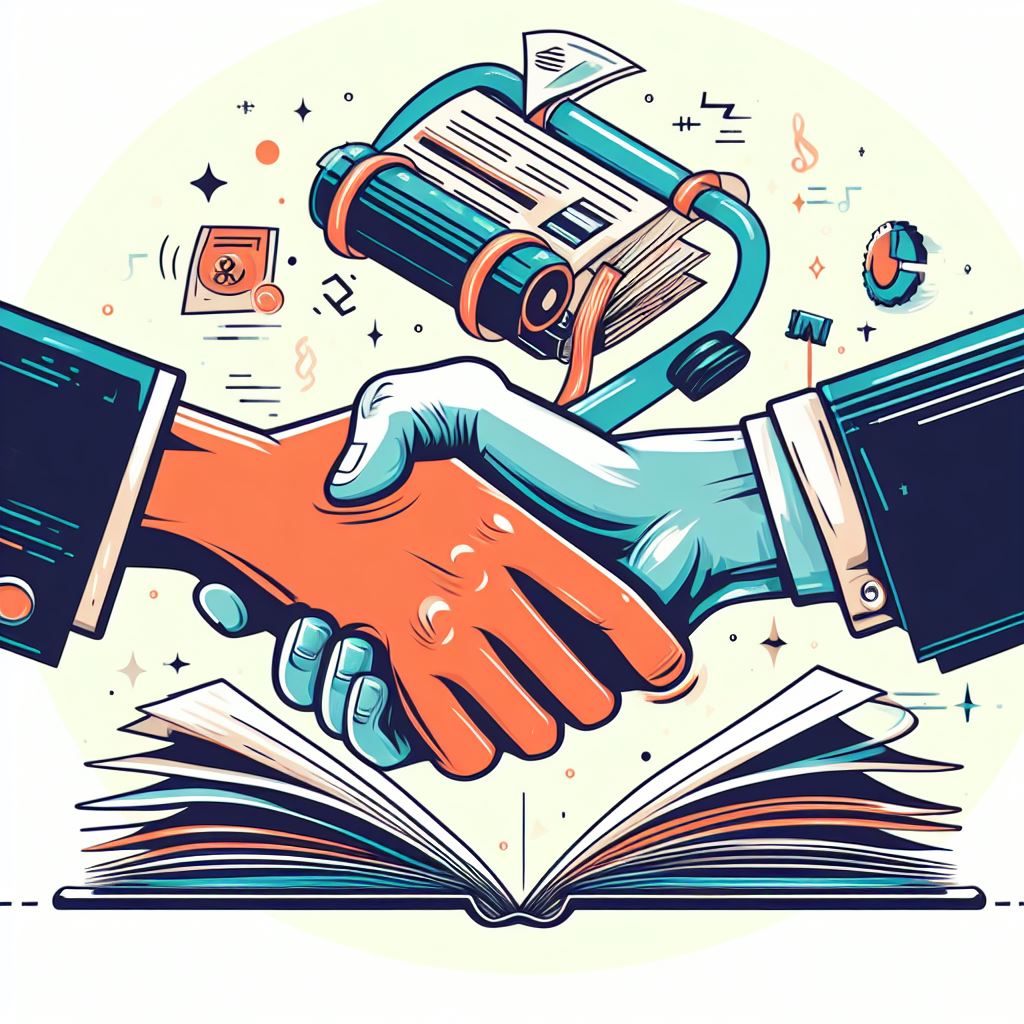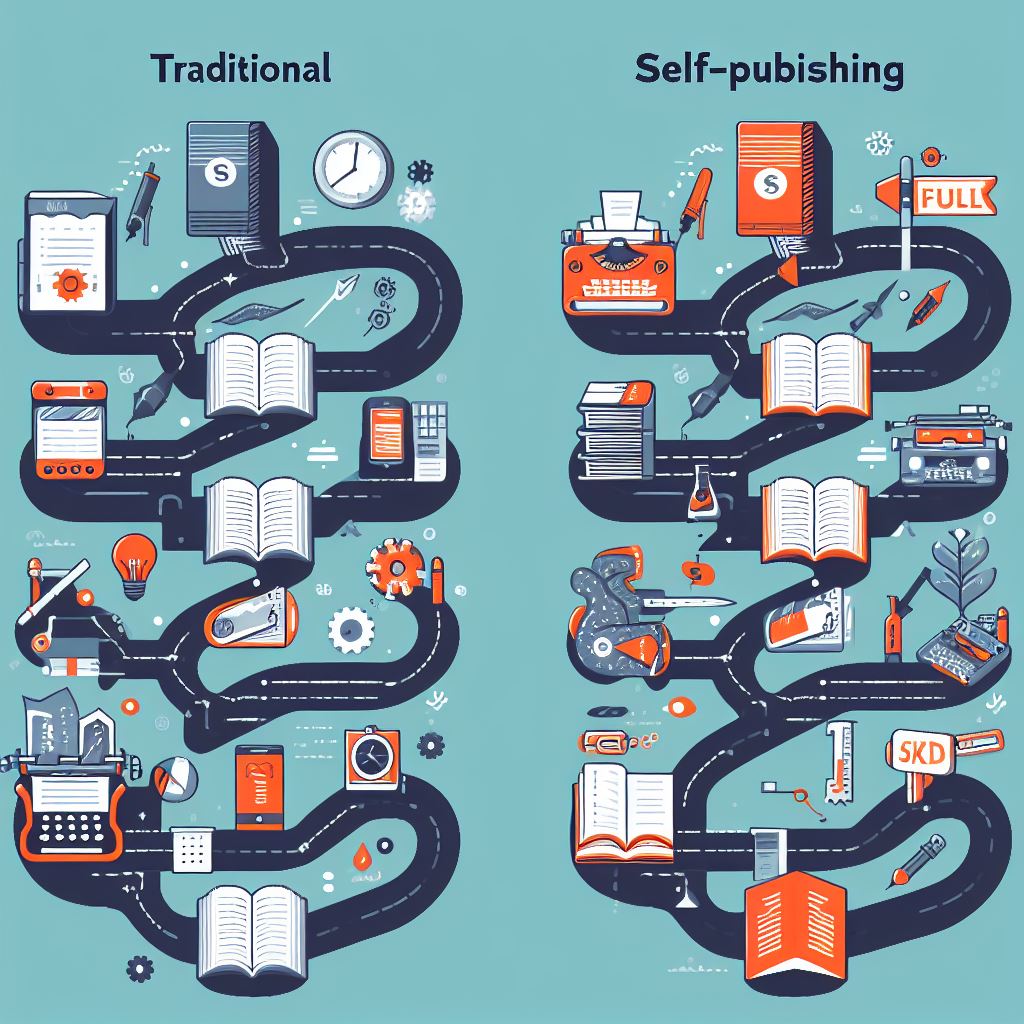Table of Contents
| Section | Page |
|---|---|
| I. Introduction | 1 |
| II. Types of Book Publishing Rights | 2 |
| A. Primary rights | 2 |
| 1. World rights | 2 |
| 2. North American rights | 3 |
| 3. Territory rights | 3 |
| 4. Copyright | 4 |
| 5. Electronic rights | 4 |
| B. Subsidiary rights | 5 |
| 1. Serial rights | 5 |
| 2. Translation rights | 6 |
| 3. Film rights | 6 |
| 4. Audiobook rights | 7 |
| 5. Merchandise rights | 7 |
| III. Negotiating Book Publishing Rights | 8 |
| A. Factors to consider | 8 |
| 1. Author’s experience | 9 |
| 2. Genre and marketability | 9 |
| 3. Publisher’s reputation | 10 |
| 4. Advance payment | 10 |
| 5. Reversion of rights | 11 |
| B. The role of literary agents | 12 |
| IV. Self-Publishing and Book Publishing Rights | 13 |
| A. Advantages and disadvantages | 13 |
| B. Maintaining control | 14 |
| C. ISBN numbers and copyright | 15 |
| V. Resources for Authors | 16 |
| A. Organizations and associations | 16 |
| B. Online resources | 17 |
| C. Legal and professional advice | 18 |
| VI. Conclusion | 19 |

I. Introduction
In the vast landscape of publishing, understanding book publishing rights is paramount for both authors and publishers. These rights determine how a work is used, distributed, and monetized. This article delves into the intricacies of book publishing rights, offering insights into their types, negotiation strategies, and the intersection with self-publishing.

II. Types of Book Publishing Rights
A. Primary Rights
1. World Rights
World rights encompass the global distribution of a work, giving publishers the authority to publish and sell the book worldwide.
2. North American Rights
This subset restricts distribution to North America, providing publishers exclusive rights within this geographical scope.
3. Territory Rights
Territory rights grant publishers exclusive rights within a specific geographic region, allowing for tailored marketing and distribution.
4. Copyright
Copyright is the bedrock, providing legal protection against unauthorized use and ensuring creators are fairly compensated.
5. Electronic Rights
In the digital age, electronic rights govern the use and distribution of e-books, audiobooks, and other digital formats.
B. Subsidiary Rights
1. Serial Rights
Serial rights involve the publication of excerpts or segments of a work in magazines, newspapers, or other periodicals.
2. Translation Rights
Translation rights allow the adaptation of a work into different languages, broadening its reach to diverse audiences.
3. Film Rights
Film rights permit the adaptation of a book into a motion picture, opening avenues for cinematic storytelling.
4. Audiobook Rights
Audiobook rights cater to the growing demand for spoken-word adaptations, enhancing accessibility and engagement.
5. Merchandise Rights
Merchandise rights enable the creation and sale of products related to the book, extending the brand beyond the written word.
III. Negotiating Book Publishing Rights
A. Factors to Consider
1. Author’s Experience and Reputation
An author’s standing in the literary world influences the negotiation power, impacting advances, royalties, and overall deal terms.
2. Genre and Marketability of the Book
Genre trends and market demand play a pivotal role in negotiations, affecting the perceived value of the work.
3. Publisher’s Reputation and Track Record
Choosing a reputable publisher ensures fair treatment and effective distribution, mitigating risks for authors.
4. Advance Payment and Royalties
Negotiating favorable advance payments and royalty rates is crucial for authors seeking financial success and recognition.
5. Reversion of Rights
Understanding when and how rights revert to the author is essential, offering flexibility and future opportunities.
B. The Role of Literary Agents
Literary agents serve as invaluable advocates, navigating negotiations, securing favorable terms, and aligning authors with compatible publishers.

IV. Self-Publishing and Book Publishing Rights
A. Advantages and Disadvantages
Self-publishing empowers authors but comes with challenges. Balancing creative control with market exposure is key.
B. Maintaining Control
Authors can retain more control over their works when self-publishing, impacting decisions on pricing, distribution, and adaptations.
C. ISBN Numbers and Copyright
Securing ISBN numbers and copyright protection is essential for self-published authors, safeguarding intellectual property.
V. Resources for Authors
A. Organizations and Associations
Connecting with organizations and associations, such as Book Publisher in Thiruvananthapuram, provides support, networking, and industry insights.
B. Online Resources
Online platforms, like Ebook Conversion Services and Poetry Publishing Companies, offer valuable information and services to streamline the publishing process.
C. Legal and Professional Advice
Authors benefit from legal and professional advice available through Academic Book Publishers and other resources, ensuring informed decision-making.
VI. Conclusion
In the dynamic realm of publishing, mastering book publishing rights is indispensable for authors navigating the industry. This comprehensive guide has explored the nuances of primary and subsidiary rights, negotiation strategies, the role of literary agents, and the intersection with self-publishing. Aspiring authors are encouraged to leverage available resources, seek education, and consider representation to make informed decisions on their publishing journey.
Remember, knowledge is power in the world of publishing. Equip yourself, negotiate wisely, and embark on a successful publishing venture.
- Are publishing rights the same as copyright? No, publishing rights and copyright are distinct concepts. Copyright is the legal ownership of intellectual property, granting exclusive rights to reproduce, distribute, and display the work. Publishing rights, on the other hand, refer specifically to the rights granted to publishers to reproduce and distribute a work. For more information on copyright, you can visit Copyright.gov.
- How long do book publishing rights last? The duration of book publishing rights varies. Generally, these rights last for the duration of the copyright, which is the author’s lifetime plus a certain number of years. The specific duration depends on the country and the type of work. To understand the duration of copyright in your region, you can refer to World Intellectual Property Organization.
- How much do book publishing rights cost? The cost of book publishing rights is negotiable and depends on factors such as the author’s reputation, the book’s marketability, and the publisher’s offer. Advance payments, royalties, and other terms are typically outlined in the publishing agreement. To get insights into standard industry practices, you can check Authors Guild.
- What are first rights in publishing? First rights, often called first publication rights, refer to the exclusive rights granted to a publisher to be the first to publish a particular work. This can include first North American rights, first world rights, or first serial rights. Learn more about first rights at Writers’ and Artists’ Yearbook.
- Do I own publishing rights for my book? The ownership of publishing rights depends on the terms outlined in the publishing contract. Authors typically retain certain rights, but the extent varies. It’s crucial to review the contract to understand and negotiate the terms. Explore more on author rights at The Alliance of Independent Authors.
- Who gets publishing rights? Publishing rights are typically granted to publishers through a contractual agreement with the author. The terms specify the rights given, the duration, and any compensation. Literary agents may also play a role in negotiating these rights. Learn about literary agents at Association of Authors’ Representatives.
- Why sell your publishing rights? Authors may sell publishing rights for various reasons, such as receiving an upfront payment (advance), accessing the publisher’s distribution network, or focusing on writing while letting the publisher handle marketing and sales. Gain insights into selling publishing rights at The Independent Publishing Magazine.
- Why do artists sell publishing rights? Artists may sell publishing rights for financial reasons, immediate income, or to leverage the expertise and resources of a publishing company. It allows them to monetize their work without being directly involved in the publishing process. Read more on selling publishing rights at Billboard.
- Can I publish without copyright? While you can technically publish without copyright, it leaves your work vulnerable to unauthorized use. Copyright provides legal protection and ensures that you have control over how your work is used. Understand the basics of copyright at LegalZoom.
- How do I find publishing rights? Finding publishing rights involves research and may include contacting literary agents, publishers, or using online platforms. Networking within the writing and publishing community is also beneficial. Utilize resources like QueryTracker to find literary agents.
- What is the difference between songwriter and publisher rights? Songwriter rights pertain to the creation of lyrics and music, while publisher rights involve the commercial exploitation and distribution of the musical work. Songwriters and publishers may be separate entities or represented by the same individual or company. Explore more at BMI.
- Does the author or publisher get copyright permission? Authors automatically hold copyright upon creating a work. However, in traditional publishing, publishers often require authors to grant them exclusive rights through a contract. In self-publishing, authors retain more control. Learn about copyright permissions at Copyright Clearance Center.
- Why did Justin Bieber sell his masters? Artists, including Justin Bieber, may sell their masters for financial gain or to partner with a company that can maximize the commercial potential of their catalog. Read about Justin Bieber’s decision at Rolling Stone.
- Does Taylor Swift own her masters? No, Taylor Swift does not own the masters for her early albums. This became a point of contention, leading to her re-recording her earlier works to regain control. Follow Taylor Swift’s journey at BBC News.
- Who pays royalties for publishing? Publishers pay royalties to authors or copyright holders based on the sales or use of the work. The specific terms are outlined in the publishing contract. Understand more about royalties at Society of Authors.
- What is the difference between publishing rights and royalties? Publishing rights refer to the permissions granted to publish and distribute a work, while royalties are the payments made to the author or copyright holder based on the sales or usage of the work. Distinguish between rights and royalties at The Writers’ Union of Canada.
- What is the difference between recording rights and publishing rights? Recording rights involve the right to use a musical work in audio or visual recordings, while publishing rights relate to the commercial use and distribution of the musical composition. Explore the distinctions at Music Business Worldwide.
- What does 50% publishing mean on a beat? In music production, “50% publishing” suggests that the producer or beatmaker owns half of the publishing rights to the musical composition. This is a common arrangement in collaborations. Learn more about music publishing at Music Gateway.